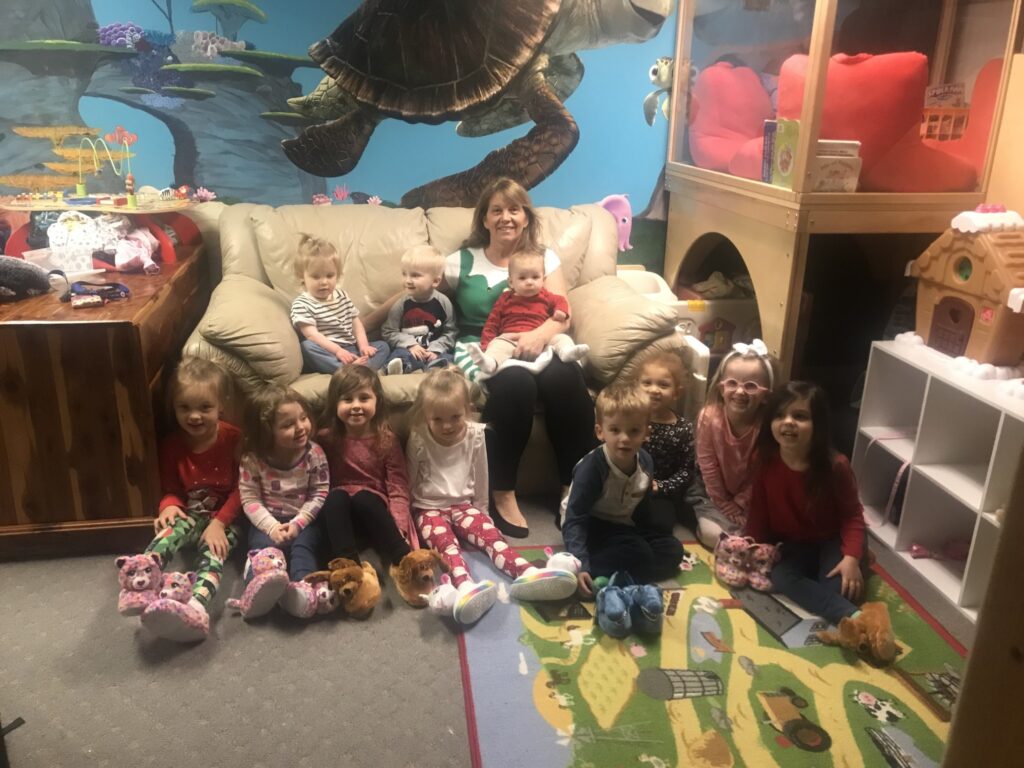“I just ask that you realize we are essential business owners ALL the time, not just during the pandemic.”
When Minnesota Governor Tim Walz issued the stay-at-home order, Jean Mathison announced she would be closing her family child care program in Mendota Heights.
“That evening, I could not sleep knowing I had just put a lot of stress on my already stressed families,” said Mathison. “I tossed and turned all night and then decided they needed me as much as I need them.” The next morning, Mathison sent her families, all with at least one parent working in an essential field, a text stating that she would remain open for any of them who still need care.
“We are in this together and will help each other through,” said Mathison, who has been working in child care for the last 25 years. “We are one big family.”
Mathison quickly changed her drop-off and pick-up procedures at Cozy Corner Child Care. Parents leave their children at the door and Mathison immediately takes each child downstairs to wash their hands. “We continue to wash our hands throughout the day and there is hand sanitizer for parents to use in the entryway. Cleaning, cleaning and more cleaning is the new norm.”
Although she is still open, Mathison is caring for significantly less children than before the pandemic. A few families have left hoping to return when the threat of the virus decreases. One of her parents is a nurse who is working directly with COVID-19 patients so she decided to keep her son home with her husband due to the high exposure she has at work and the risk of spreading the virus to others at the child care.
“I am trying to stay connected as much as possible with online learning and delivering supplies to their houses for the curriculum I’ve created for them,” Mathison said. “I have delivered wipes and formula for my families with infants to help them out.”
She said the process of receiving funding has been very challenging for the self-employed. “People often forget that child care providers are also parents, spouses, and have families of their own,” she said. “Some providers cannot stay open during the pandemic as they have family members who are more at risk. Each of our situations are different. None of us want to close and lose income.”
Mathison says she is worried about the future of child care. “We have seen a dramatic drop in providers over recent years and I fear that the pandemic will put even more out of business,” she said. “There will need to be more financial support for all providers. It will take several months to build our programs back up and be able to return to a new normal. We work extremely hard and take pride in who we are and what we do for a living. I just ask that you realize we are essential business owners ALL the time, not just during the pandemic.”








